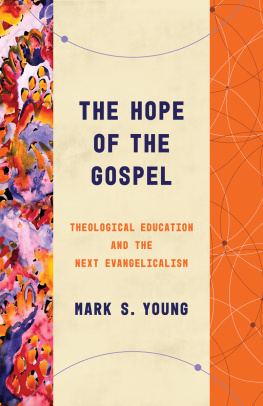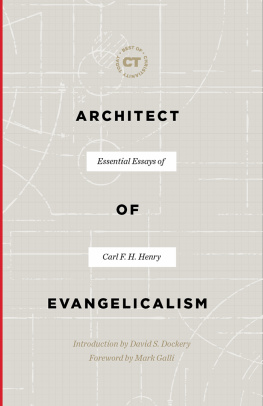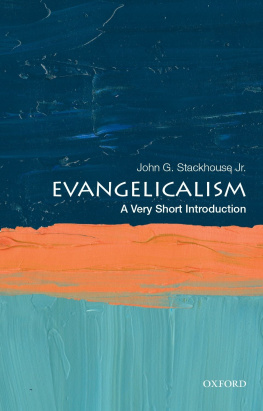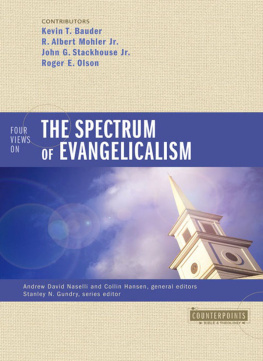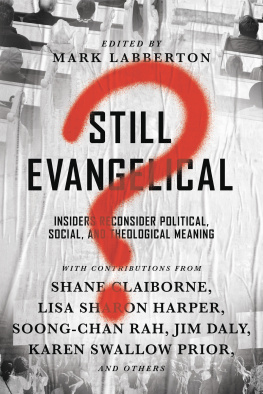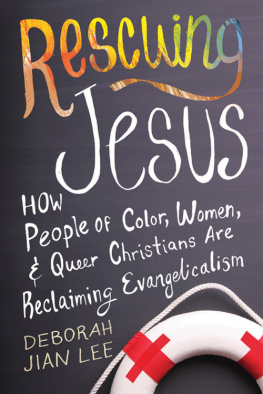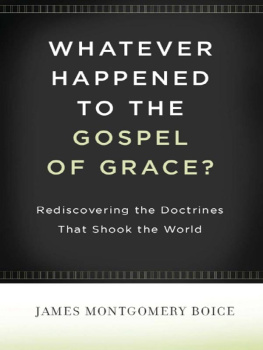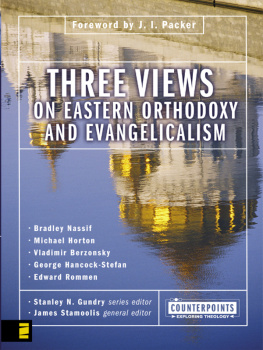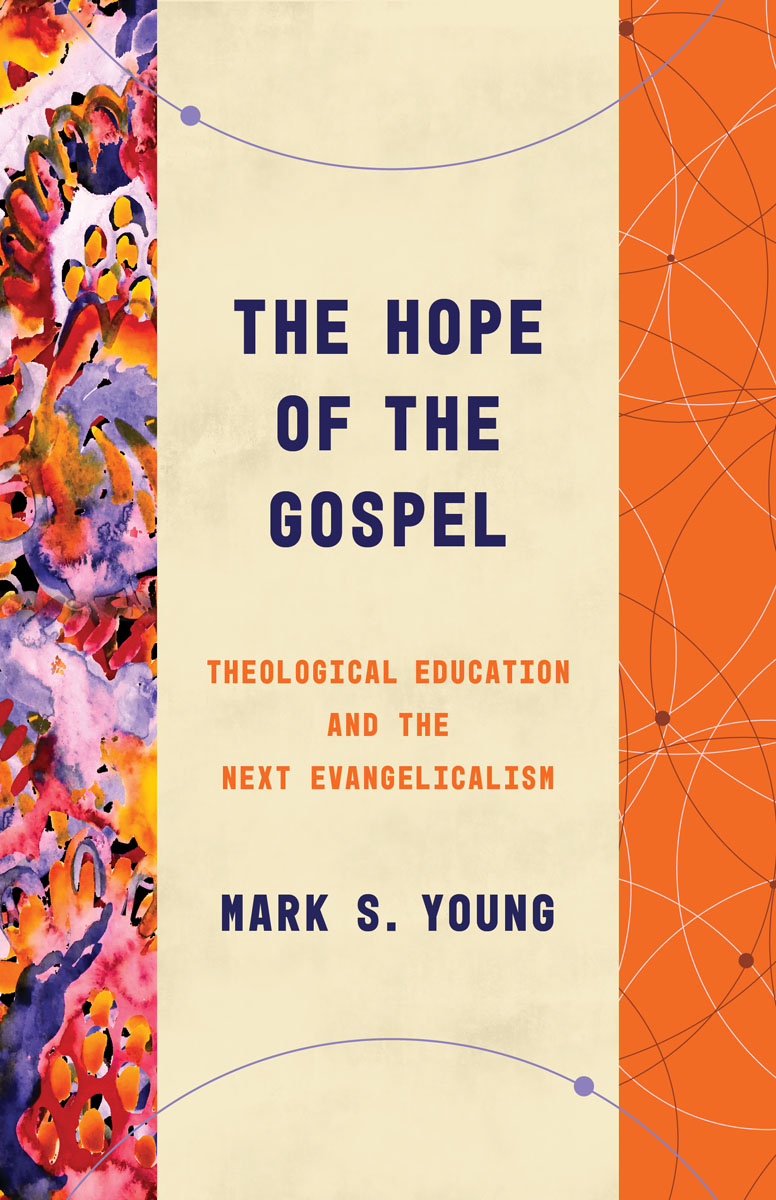

THEOLOGICAL EDUCATION BETWEEN THE TIMES
Ted A. Smith, series editor
Theological Education between the Times gathers diverse groups of people for critical, theological conversations about the meanings and purposes of theological education in a time of deep change. The project is funded by the Lilly Endowment Inc.
Daniel O. Aleshire
Beyond Profession: The Next Future of Theological Education
Elizabeth Conde-Frazier
Atando Cabos: Latinx Contributions to Theological Education
Keri Day
Notes of a Native Daughter: Testifying in Theological Education
Willie James Jennings
After Whiteness: An Education in Belonging
Mark D. Jordan
Transforming Fire: Imagining Christian Teaching
Chloe T. Sun
Attempt Great Things for God: Theological Education in Diaspora
Amos Yong
Renewing the Church by the Spirit: Theological Education after Pentecost
Mark S. Young
The Hope of the Gospel: Theological Education and the Next Evangelicalism
Wm. B. Eerdmans Publishing Co.
4035 Park East Court SE, Grand Rapids, Michigan 49546
www.eerdmans.com
2022 Mark S. Young
All rights reserved
Published 2022
Printed in the United States of America
28 27 26 25 24 23 221 2 3 4 5 6 7
ISBN 978-0-8028-7886-1
Library of Congress Cataloging-in-Publication Data
Names: Young, Mark, 1956author.
Title: The hope of the gospel : theological education and the next evangelicalism / Mark S. Young.
Description: Grand Rapids : Wm. B. Eerdmans Publishing Co., 2022. | Series: Theological education between the times | Includes bibliographical references. | Summary: A call for evangelical seminaries to renew their commitment to the centrality of the gospel so that the evangelical movement might become a more credible and compelling Christlike witness for the sake of the worldProvided by publisher.
Identifiers: LCCN 2021029609 | ISBN 9780802878861
Subjects: LCSH: Theological seminaries. | Evangelicalism.
Classification: LCC BV4020 .Y68 2022 | DDC 230.071/1dc23
LC record available at https://lccn.loc.gov/2021029609
To Dad
because the past matters
and to Ben, Bonnie, and Christian
because the future matters more
Contents
Preface
I still believe in theological education. And Ive been at it a long time. Now, more than ever, I believe that personally meaningful, richly spiritual, powerfully formative, prophetically courageous, and missionally focused theological education is absolutely necessary for the church to thrive in the future. I also believe that the way we evangelicals think about and do theological education today isnt going to meet that need.
This book flows from deep gratitude for the privilege of being a theological educator for more than four decades. Seeing lives transformed in the classroom transform the lives of others gives me a profound sense of fulfillment. From the classroom to the boardroom, Ive loved being a theological educator.
But this book also comes from a place of uneasiness about the future of evangelical theological education. It likely betrays the weight of wondering if evangelical seminaries can become what they need to be to help evangelicalism become what it claims it wants to be.
But I still believe in the enterprise. And Im hopeful.
This book is written for a group of young leaders who will shape evangelical theological education in the decades to come. These leaders are early in their careers and are already playing significant roles in their respective schools. Moreover, each represents many other young leaders in evangelical schools and churches whom Ive met in recent years.
Anna is an articulate and ambitious leader who isnt afraid of pursuing big goals and is willing to pay a high price to attain them. She is creative, data-driven, and strategic in her thinking. Impatient with inefficiencies in systems and processes, she goes where others fear to tread to make things better, even if it raises the hackles of departmental gatekeepers. Raised and schooled in white conservative settings, she is finding her voice and her stride as a woman in the male-dominated evangelical subculture. She will have to navigate the slights, misperceived motives, and entrenched stereotypes of that culture to continue contributing at the level her strengths portend. She has more upside in her future than she knows. Anna believes in the importance of theological education for the church and for the world.
Justin leads a multiracial congregation in a gentrifying urban neighborhood. An insightful and critical thinker, he has learned to navigate the intricacies of being an African American man in predominately white institutional settings. He has done so without losing his prophetic voice in the constant struggle to create spaces where black voices must be heard. By identifying with evangelicalism, he has paid the price of being misunderstood by many in both the black and white communities. And he is making a difference in both. Justin loves learning so much that he has been willing to come back to an institution that hurt him deeply in order to complete two graduate degrees. He is pursuing PhD studies and aspires to be a scholar-pastor who contributes in academic and ecclesial settings. Justin believes that theological education must address the questions, objections, and skepticism of those who dont see the church as the answer to much of anything.
Ellie is a brilliant young scholar and theologian. Although discouraged from pursuing theological training by her pastor in a conservative, predominately white evangelical church, she has persevered. Ellies drive, tenacity, and raw talent have allowed her to complete multiple masters degrees and enter a PhD program at a prestigious American university. Her scholarship is impeccable, her compassion for the hurting genuine, and her commitment to the church unwavering. She believes in theological educations power to change the way evangelicals address the complexities of contemporary society and bring healing through the power of the gospel.
Brett, a faculty member and midlevel administrator, is completing his PhD, teaching, publishing, and carrying administrative responsibilities while he and his wife raise young children and struggle to make ends meet. He models the oft-impossible balancing act of scholarship, teaching, administration, and financial stress that many future faculty members will face in undercapitalized, tuition-driven evangelical schools. When it comes to innovation, Brett is generally two steps ahead of most administrative and faculty leaders. He is learning how to navigate institutional governance dynamics and structures to bring about change that the institution doesnt yet see that it needs. And he is patient enough to wait for that change to come. Brett believes that theological education must change in order to convince a skeptical church of its relevance.
Sofia lives with a passion for her people. A Dreamer whose parents brought her to the United States as a child, she navigates the linguistic and cultural differences between her beloved Hispanic culture and the predominately white Anglo culture of most evangelical theological schools. The vibrant, expressive, life-giving faith of her Pentecostal roots doesnt seem to have a seat at the table of most evangelical theologies. She craves a living theology for the streets, one that does not look away from systemic racism, ethnocentrism, gross economic disparities, unjust labor practices, and immoral immigration policies. She believes evangelical theological education has lost its prophetic voice in our culture, and she will not stop advocating for those whose voices are absent in evangelical seminaries.
Next page
